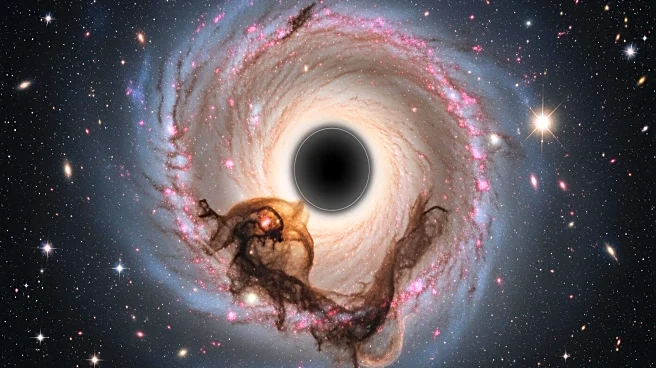What's Happening?
Recent observations of black holes have prompted scientists to reconsider aspects of Albert Einstein's general theory of relativity. The Event Horizon Telescope (EHT) collaboration has captured images of supermassive black holes, revealing what is known
as the 'shadow' of these cosmic giants. These images provide a new way to test the physics of black holes, challenging the long-standing predictions of Einstein's theory. Researchers, including Prof. Luciano Rezzolla, are exploring alternative theories that could explain the observed phenomena, suggesting that future observations may either confirm or challenge Einstein's model.
Why It's Important?
The potential revision of Einstein's theory of relativity could have profound implications for our understanding of the universe. Black holes are key to testing the limits of physics, and any deviation from Einstein's predictions could lead to a paradigm shift in theoretical physics. This research could impact various fields, including astrophysics and cosmology, by providing new insights into the fundamental forces that govern the universe. The findings could also influence the development of new technologies and methodologies for observing and interpreting cosmic phenomena.
What's Next?
Scientists are planning to enhance the capabilities of the EHT by adding more observatories and potentially including a space-based radio telescope. These advancements aim to achieve higher resolution images of black holes, allowing for more precise tests of competing theories. As technology improves, researchers hope to conduct definitive tests that could either validate or refute Einstein's theory. The ongoing study of black holes will continue to be a focal point for physicists seeking to unravel the mysteries of gravity and the structure of the universe.















